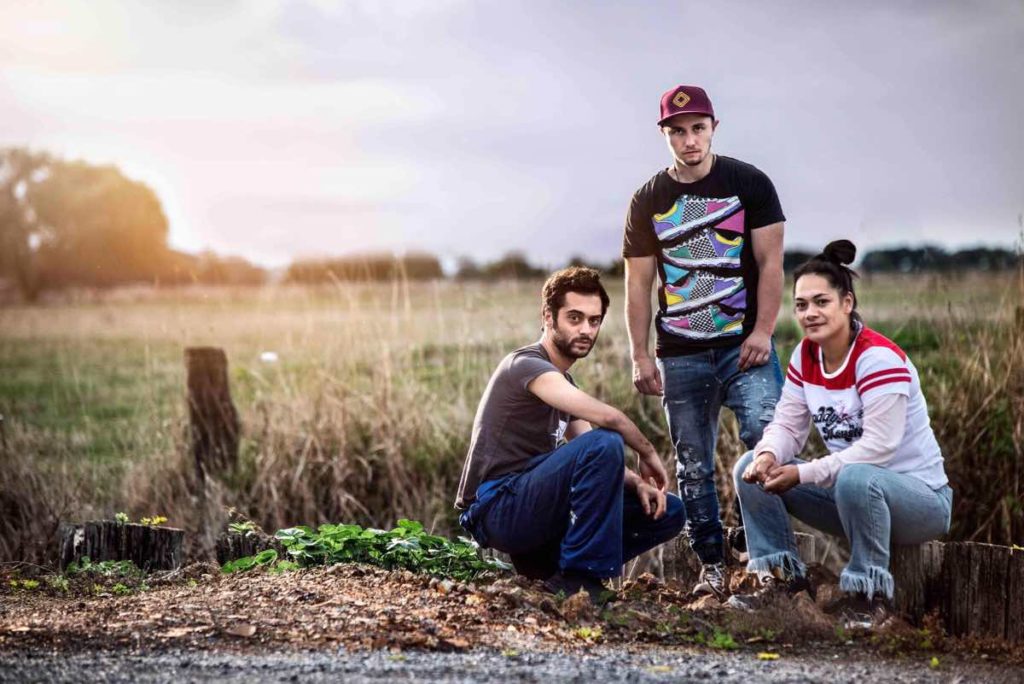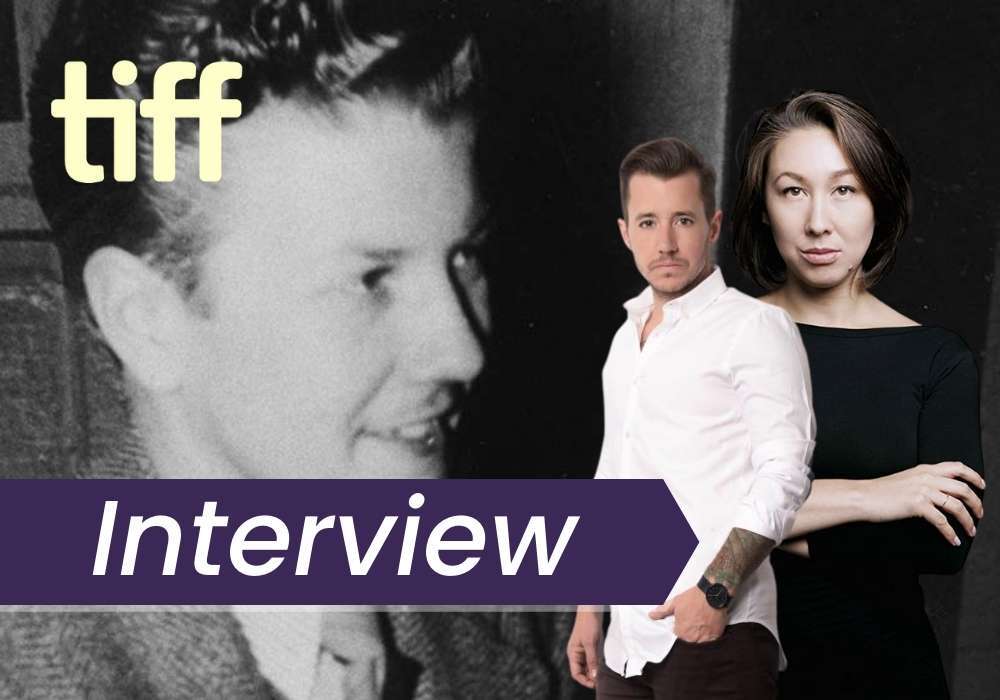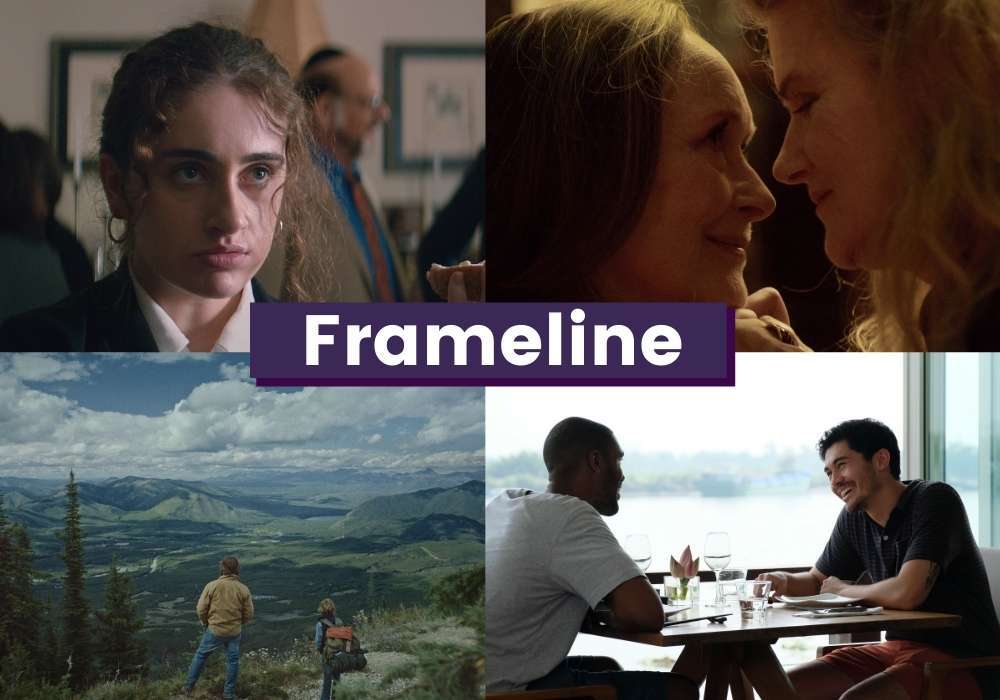Frameline Film Festival Audience Award Winner Rurangi is an emotionally involving film about the ways that shame hurts everyone, featuring a gender diverse cast. Rurangi also screens at Ontario’s LGBTQ Film Festival InsideOut until Oct. 11.

Discover one film you didn’t know you needed:
Not in the zeitgeist. Not pushed by streamers.
But still easy to find — and worth sitting with.
And a guide to help you do just that.
On Sunday night, San Francisco’s Frameline Film Festival, one of North America’s largest and oldest LGBTQ+ showcases, wrapped its fall online programming. We previously reviewed festival favourites Shiva Baby and Cowboys, and buzzed-about-films Two of Us and Monsoon.
The New Zealand drama Rurangi just picked up Frameline’s Audience Award, and I can understand why: it’s an emotionally involving film about the ways that shame rules our lives, hurting ourselves and the people we care about. The film centres around Caz (Elz Carrad), a trans man who returns home for the first time in a decade, having left his small community, Rurangi, for the big city of Auckland where he could more freely transition. In the intervening years, his mother got sick and died, and he missed her funeral. Caz is white-passing and he has left behind his Maori roots in the move to Auckland.
Caz’s homecoming is challenging, not just because he’s finally presenting as he really is to people who never fully knew him, but because he disappeared from the lives of the people he cared about. Although his father (Kirk Torrance) agrees that he wouldn’t have handled Caz’s transition well a decade ago, he resents not being given the opportunity to accept and get to know his son in the meantime. When Caz sees his ex-boyfriend, Jem (Arlo Green), with whom Caz had planned a life with — before leaving town suddenly — proves emotionally complicated: their feelings are still there, but can Caz’s ex accept that he had always loved a man and still does? Can Caz find a way to repair the silences that existed between them in the past?

Everyone in Rurangi, regardless of gender or sexual orientation, is dealing with shame. Caz’s father is trying to change the town’s bylaws about the chemical use that killed his wife, righting a wrong he couldn’t while she was alive. Caz’s best friend, Anahera (Awahina Rose Ashby), who is also Maori, is ashamed that she doesn’t speak her own language, and is working to repair that. Caz has been afraid that his gender identity would be a source of scandal, and has to give people time to accept him — not necessarily for his gender, but his absence.
Rurangi is a film that is all in the character details, and is filled with so many beautiful, lived in performances — many of which are by Maori and gender diverse actors. We understand Jem’s conflicted feelings and discomfit in the way he becomes instantly clumsy, knocking things over, falling over his words and his body every time he tries to have an emotionally honest conversation. You instantly feel how much he loves Caz and is conflicted about how others will treat him differently if he acts on that love. Caz is almost permanently hunched forward, hiding his face, hands in his pockets, as if apologizing for the space he takes up — until he can finally stand tall. And , Anahera rehearses key Maori phrases to introduce herself when she’s alone, and how her entire apartment is covered with sticky notes naming the objects in Maori.

Conceived as a web series, Rurangi has been presented on the festival circuit as a feature film in the episodic sections — presumably intended originally as three thirty-minute episodes. And although it’s an emotionally satisfying and cathartic experience — I dare anyone not to weep with joy when the characters begin to find a way to accept themselves and each other — it feels unfinished. While gender identity and sexual orientation are strongly explored, Maori identity — which all four of the central characters claim — is much less central, even though the community’s prejudices about gender and orientation inform so much of the characters’ interactions. Caz is white-passing, but has a Maori father and clearly was embedded within that community, and I’d love to see how he explores regaining that part of his identity now that he’s back in his community. But then, that’s what season two is for!



